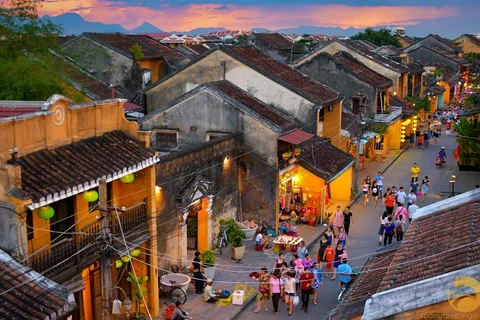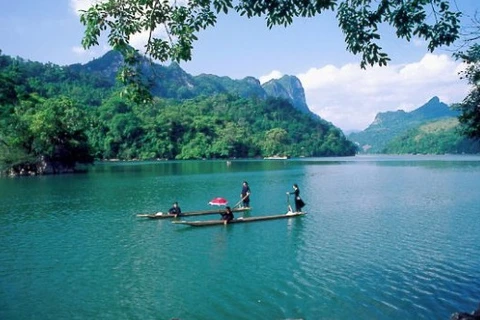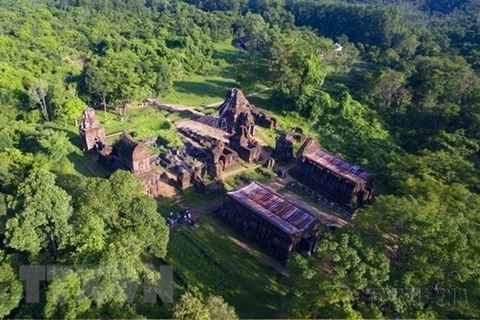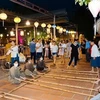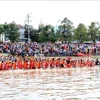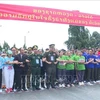 The festival shows the respect for and gratitude to the river goddess and ancestors for their land exploration and village establishment. (Photo: VNA)
The festival shows the respect for and gratitude to the river goddess and ancestors for their land exploration and village establishment. (Photo: VNA) Speaking at a ceremony to receive the heritage certificate on March 14, Vice Chairman of the Duy Xuyen People’s Committee Nguyen The Duc said the festival holds great importance in the spiritual life of residents along the upper Thu Bon River.
The festival shows the respect for and gratitude to the river goddess and ancestors for their land exploration and village establishment, which laid the foundation for following generations to settle down and develop. It also reflects the solidarity of Cham, Co Tu, and Kinh ethnic groups living in the upper river basin.
The Thu Bon Goddess Festival features precious humane values and is deeply imbued with traditional belief, history, and culture, Duc said, highlighting the need to preserve and bring into play the festival so as to help educate love for humanity and patriotism.
Tran Van Tan, Vice Chairman of the Quang Nam provincial People’s Committee said it is a folk festival that came into being when Vietnamese people migrated from the northern region to this area in the 15th century. Later, it was mixed with the culture of the Champa kingdom and ethnic minority groups in western mountainous areas of Quang Nam to possess the special cultural values upheld today.
The vitality of the Thu Bon Goddess Festival comes from locals’ aspirations for good weather, bumper crops, and national peace, he added.
Tan described the heritage recognition as an important event in the Visit Vietnam Year 2020 hosted by Quang Nam.
Legend has it that the goddess was a Cham ethnic general who fought many battles. Defeated in a fight, she and her troops moved westwards to Phuong Ranh (now Que Trung commune of the province’s Nong Son district), which had inaccessible terrain to garrison there and wait for a counter-attacking opportunity.
In this place, apart from troop recruitment and training, she also taught sericulture, fabric weaving, and herbal remedies to locals.
Losing a battle, she killed herself by drowning in the Thu Bon River. Her body drifted to the downstream river and then buried by residents in Thu Bon village of Duy Tan commune, Duy Xuyen district, where her mausoleum was built.
A festival is held from the 10th to 12th days of the second lunar month annually, which falls on March 12 - 14 this year, to commemorate the goddess./.
VNA
